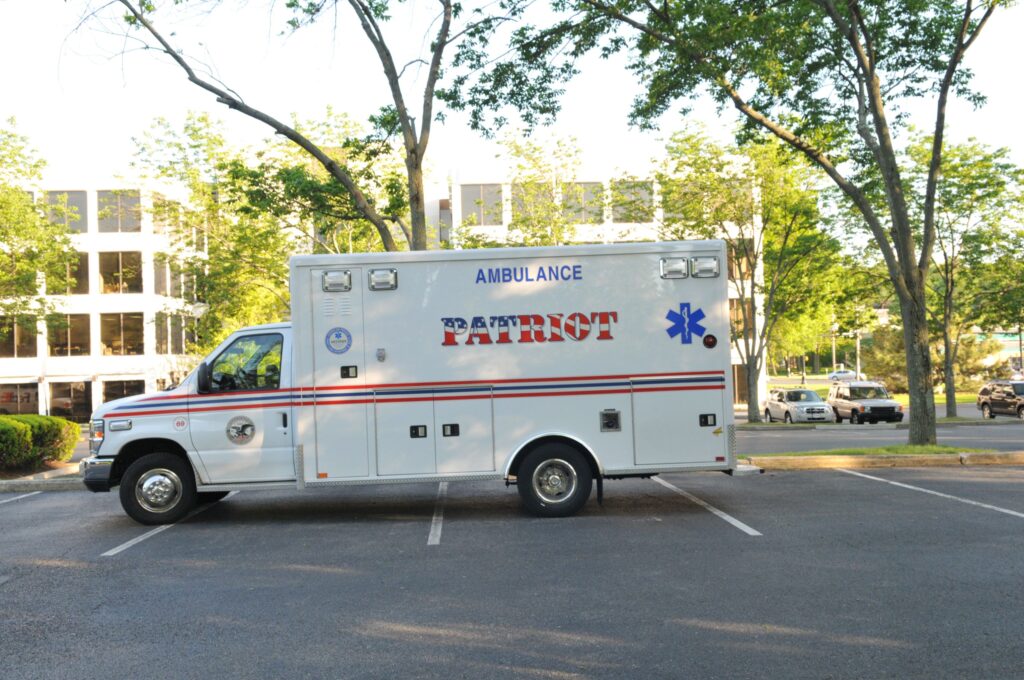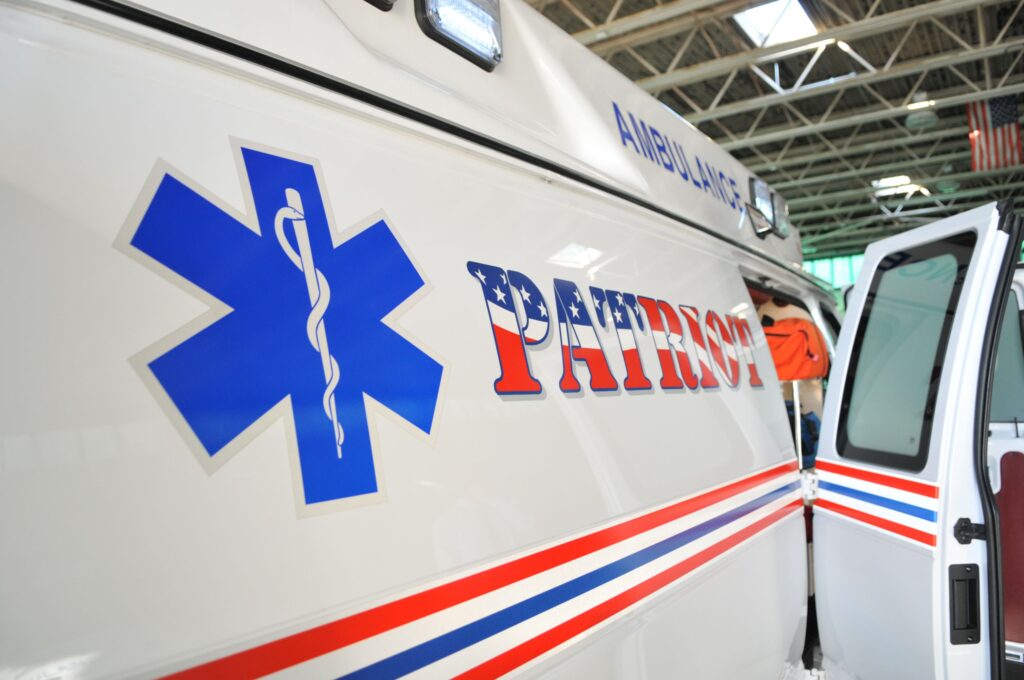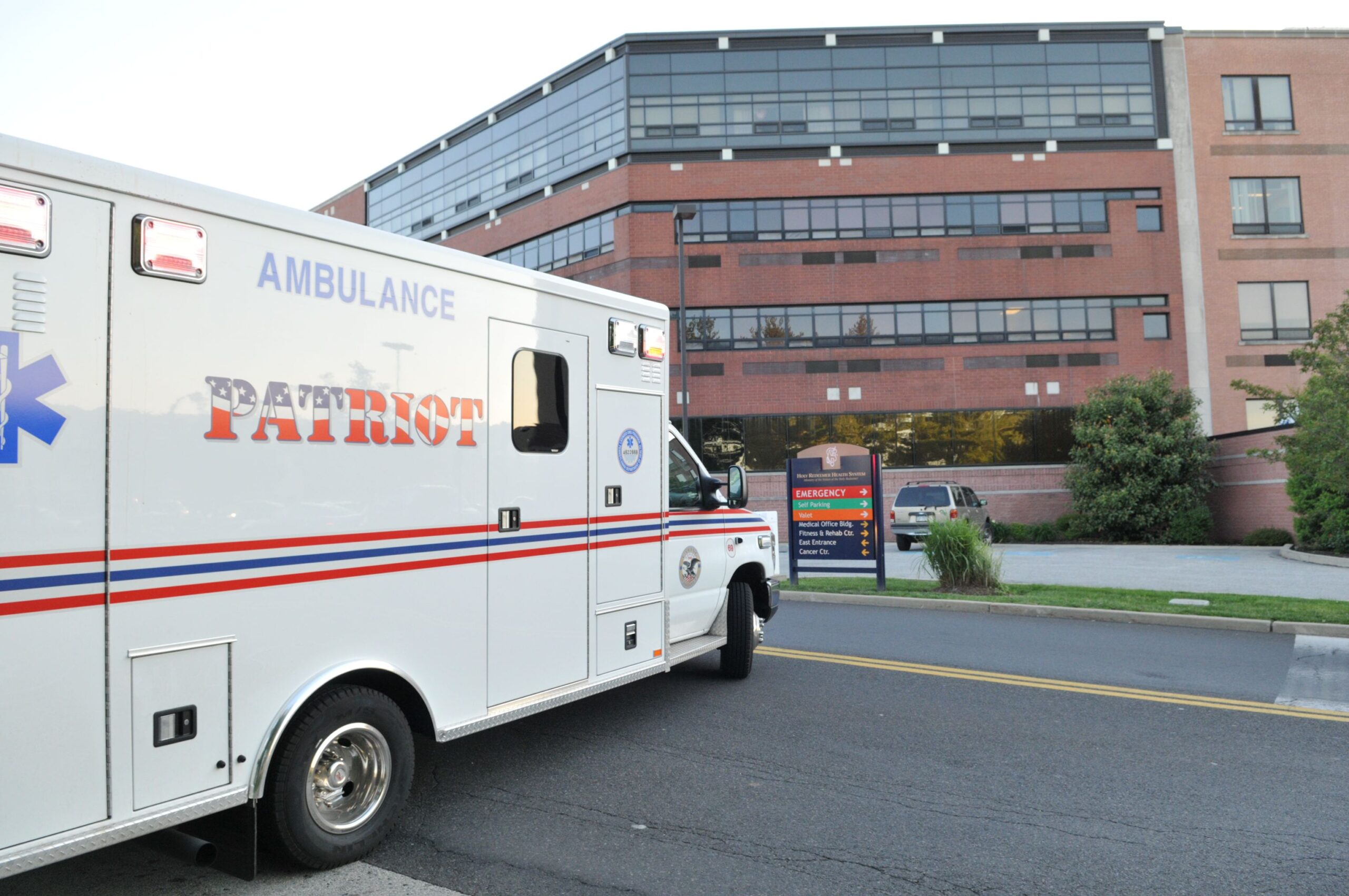When Should I Call an Ambulance?
- The person’s condition appears life-threatening.
- The person’s condition could worsen and become life-threatening on the way to the hospital.
- Moving the person could cause further harm or injury.
- The person needs the skills or equipment used by Paramedics or Emergency Medical Technicians (EMT).
- Driving would cause a significant delay in getting to the hospital.
Pro Tip: “Call 911 if you think you or someone else is experiencing a medical emergency.”

How to Determine if a Condition is Life-Threatening
Deciding whether or not to call an ambulance is a decision you’ll have to make based on your best assessment of the current situation. Even if you think you can get to the hospital faster in your own vehicle, please remember that any ambulance is equipped to start immediate care or treatment as soon as it arrives.
Here are some examples of life-threatening conditions requiring an ambulance. The person:
- Appears to be having a stroke (think F-A-S-T: Facial droop, Arm weakness, Speech difficulty, time to call 911)
- Appears to be having a heart attack.
- Has lost consciousness, is unresponsive, or is not responding appropriately.
- Is having a seizure.
- Is having shortness of breath or difficulty breathing.
- Is bleeding uncontrollably.
- Is having a severe allergic reaction.
- Has severe burns.
- Has swallowed something poisonous.
- Has thoughts of harming themselves or others.
- Has taken too much medication on purpose or by accident, including drug misuse or abuse.
Pro Tip: “If you’re trying to decide whether or not to call an ambulance, it’s better to call and have it arrive immediately. In our area, an ambulance typically arrives within about 10 minutes.”

How to Call an Ambulance
The number to call for an ambulance in the United States is call 911. When calling for an ambulance, do your best to remain calm and speak clearly. Our trained professionals at Patriot Ambulance are always ready and properly equipped to handle any kind of urgent situation. Before calling, please be prepared to:
- Provide the name of the person and what the problem seems to be.
- Share the location information and specific address, if possible.
- Tell the dispatcher where the person is located, such as in the backyard or in the bedroom.
- Provide the phone number you’re calling from.
- Stay on the phone with the dispatcher in case the dispatcher needs more information.
If you witness or are part of a highway accident, do your best to make note of highway marker numbers or exit signs. Also, determine which lane and in which direction the accident occurred so you can communicate as clearly as possible with the dispatcher.
If you have any questions pertaining to our services, how we operate, or any general inquiries, please feel free to submit our online contact form, which we typically respond to within 24 hours. If you have any immediate or urgent inquiries, please dial us by phone at: +1 (215) 677-7800


No responses yet